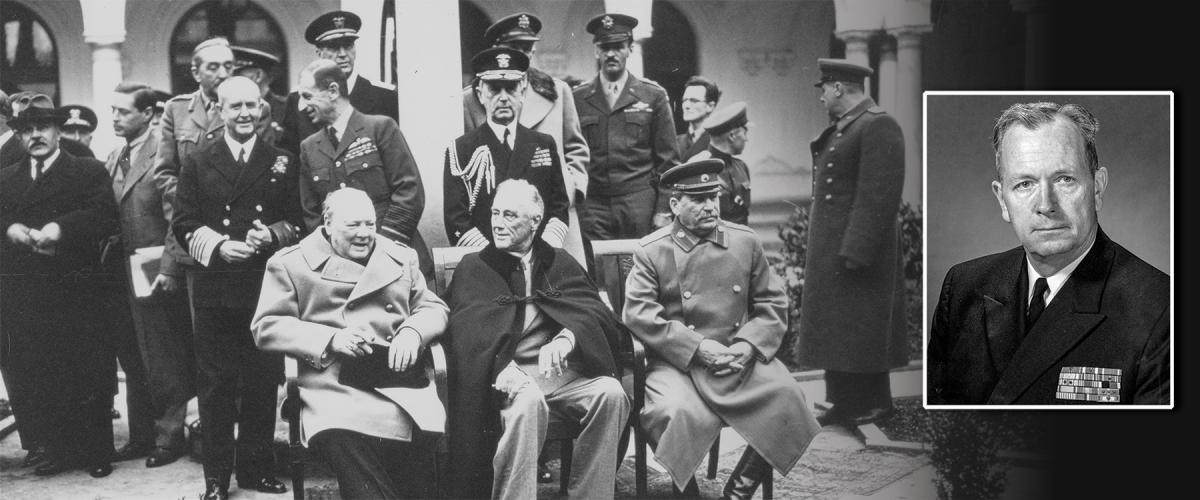In December 1942, Naval Academy graduate and future Vice Admiral J. Victor Smith reported on board the new Gleaves-class destroyer USS Shubrick (DD-639) as executive officer and was with her in convoy escorts and shore bombardments off Gela, Sicily. There, the ship took a bomb amidships and was heavily damaged, but with temporary patching, she was able to make her way back to New York for repairs.
In late 1943, Lieutenant Commander Smith became the ship’s commanding officer. Two weeks later, he was stunned to receive another set of orders as aide to Admiral William D. Leahy. Leahy, having served as Chief of Naval Operations and then governor of Puerto Rico, had returned from service as Ambassador to France to become Chief of Staff to President Franklin D. Roosevelt in late 1942. In these edited excerpts from his oral history, Smith picks up the tale:
Leahy’s first aide had had the job 11 years before he spoke out of turn about his boss. The admiral said, “Let’s get someone who doesn’t know enough to be too big for his britches, or at least won’t for some time to come.” And that’s why the Chief of Naval Personnel, who knew me, put me in the job in January 1944, with the understanding I would be relieved in about a year and take command of a 2,200-ton destroyer in the Pacific.
In terms of Admiral Leahy the man, I came to worship the ground he walked on. He was one of the few important people in Washington who refused to create an empire. He was frequently urged to set up his own staff to balance against the Joint Chiefs of Staff, and he refused to do it. He had two officers, one a personal aide and flag secretary—me—and the other a Joint Chiefs of Staff aide to keep track of and brief him on the Joint Staff papers.
He presided over the meetings of the Joint Chiefs, and his tact and patience were a great help in dealing, for example, with the other naval officer—short-fused Admiral Ernie King—disagreeing with General Hap Arnold and General George Marshall. With the Combined Chiefs of Staff, the three Britishers in Washington working in weekly meetings with the Joint Chiefs, we had a different problem.
The British were trained to get the most out of us and well-coordinated in their approach, following one another taking up the same theme in a different way. Admiral Leahy, of course, wasn’t fooled by anybody. He could always say, “Well, I don’t think I can sell this to the boss,” using the President, who didn’t meet with them, the full power of the Presidential office, and the fact that we had the men, the materials, and the money.
We finally pinned them down to 1944 for the Overlord invasion of Normandy. Stalin had a great deal of influence over President Roosevelt, much more than he did over Churchill, who saw him as a bandit. Several times, the President practically said, “I’ve given my word to Stalin, and we are going to go through with it.”
Roosevelt had recognized the Russians as far back as 1933. Many of his international actions were such as to tie him to their fortunes. He got agreement at the Yalta Conference that someone else might not have. President Harry Truman didn’t feel compelled to reach agreement when he went to Potsdam.
At Yalta, we didn’t know there was going to be an Iron Curtain. The President was dying. Harry Hopkins was dying—he never got out of bed the whole time he was there. The military delegation was not really in a position to exercise much influence. Their liaison was done through Admiral Leahy. The President had a habit of staying up late at night and rising late in the morning. The Joint Chiefs did not see him before their meetings with their counterparts.
Admiral Leahy had to use every living moment to the utmost to perform this liaison. Only he was attending both the military meetings and the head of state meetings.





